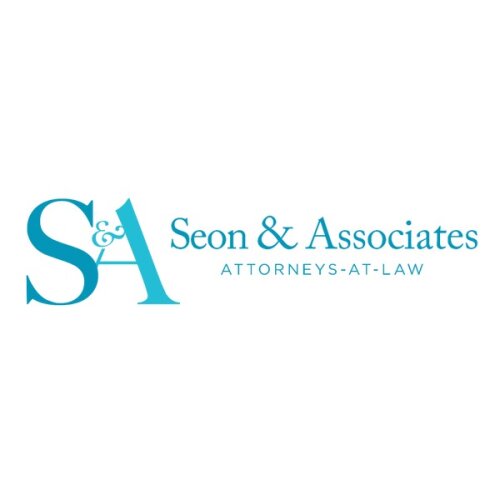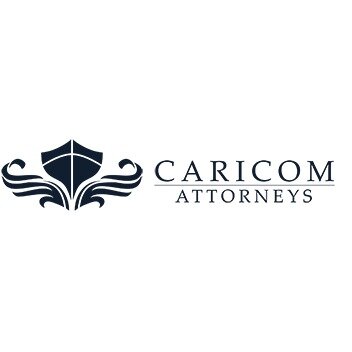Best Public-Private Partnerships (PPP) Lawyers in St. George's
Share your needs with us, get contacted by law firms.
Free. Takes 2 min.
List of the best lawyers in St. George's, Grenada
About Public-Private Partnerships (PPP) Law in St. George's, Grenada
Public-Private Partnerships (PPP) are collaborative arrangements between government entities and private sector companies to finance, build, and operate projects that deliver public assets or services. In St. George's, Grenada, PPPs have been increasingly used to enable infrastructure development and the provision of essential public services such as transportation, utilities, health, and education. These partnerships are guided by specific legal frameworks that define the rights, responsibilities, risks, and rewards for all parties involved. The intention is to leverage private expertise and capital to achieve public objectives in a cost-effective and sustainable manner.
Why You May Need a Lawyer
There are several situations where legal guidance is essential in the realm of Public-Private Partnerships in St. George's, Grenada:
- Understanding and negotiating complex PPP contracts, which can involve intricate risk allocation and performance obligations.
- Ensuring compliance with local and international legal regulations governing public procurement, project financing, land use, and labor laws.
- Navigating due diligence, stakeholder consultations, and environmental or social impact assessments required for PPP projects.
- Dispute resolution involving issues such as project delays, financial disagreements, or non-compliance with service standards.
- Resolving acquisition, leasing, or usage rights of public infrastructure, land, or utilities.
- Structuring project financing and understanding associated securities and guarantees.
- Advising on intellectual property or proprietary technology rights that may arise in project delivery.
A qualified lawyer with PPP experience can help safeguard your interests, ensure regulatory compliance, and mitigate risks in these potentially high-value, long-term arrangements.
Local Laws Overview
In St. George's, Grenada, the regulation and management of PPPs are guided by a combination of national legislation, policy guidelines, and international best practices. While Grenada does not have a single comprehensive "PPP Law," relevant legal frameworks include public procurement laws, investment codes, and sector-specific regulations. Key aspects include:
- Public Procurement Act: Governs the processes and standards for competitive selection of private partners in public projects.
- Investment Promotion Legislation: Provides incentives and regulatory guidance for private investment in public infrastructure and services.
- Land Use and Planning Laws: Regulate acquisition, leasing, zoning, and use of public land for PPP projects.
- Environmental Regulations: Require environmental impact assessments and sustainable practices for project approval.
- Government Policies and Guidelines: The government has issued policy statements and procedural manuals for PPPs, outlining project evaluation, approval, and implementation steps.
- Contract and Commercial Law: Covers the formation, enforceability, and dispute resolution mechanisms in PPP agreements.
Since PPP projects can span decades and involve significant public assets or funds, compliance with these legal frameworks is critical to successful project implementation and risk management.
Frequently Asked Questions
What is a Public-Private Partnership (PPP)?
A Public-Private Partnership is a long-term contractual arrangement between a government entity and a private company to finance, design, construct, maintain, or operate infrastructure and services traditionally provided by the public sector.
Are there specific laws for PPPs in Grenada?
While Grenada does not have a single, standalone PPP Act, it regulates PPPs through a combination of procurement rules, investment codes, project-specific agreements, and sectoral regulations.
What types of projects are suitable for PPP in St. George's?
Common PPP projects in St. George's include transportation infrastructure, water and wastewater systems, energy generation, health facilities, educational campuses, and tourism-based developments.
Who approves PPP projects in Grenada?
Approval typically involves multiple government agencies such as the Ministry of Finance, sector-specific ministries, and the Public Procurement Board, with final decisions resting with Cabinet or relevant authorities depending on project significance.
How are private partners selected for PPP projects?
Selection usually follows a competitive tender process as per public procurement guidelines to ensure transparency, fairness, and value for money.
What are the typical risks and rewards in a PPP?
Risks may include project delays, cost overruns, regulatory changes, or demand uncertainties. Rewards can include steady revenue streams, performance-based payments, and potential equity returns for private partners.
Do PPP projects require environmental assessment?
Yes, most PPP projects, especially those involving infrastructure or land use, require environmental impact assessments and compliance with national environmental standards.
Can foreign companies participate in Grenada's PPP projects?
Yes, foreign companies can participate, subject to local laws governing foreign investment, company registration, and sector-specific regulations.
How can disputes in PPP projects be resolved?
PPP contracts commonly provide mechanisms for dispute resolution, including negotiation, mediation, arbitration, or litigation, in accordance with Grenadian law or agreed alternative forums.
What legal documents are involved in a typical PPP?
Key documents include the main PPP agreement, project financing contracts, government support agreements, land use leases, performance guarantees, and compliance certifications.
Additional Resources
If you are seeking more information about PPPs in St. George's, Grenada, the following resources and organizations can be helpful:
- Ministry of Finance, Economic Development, and Energy: The primary government authority overseeing PPP projects and public investment.
- Public Procurement Board: Regulates public procurement processes and competitive tenders for PPP initiatives.
- Grenada Investment Development Corporation (GIDC): Offers guidance on investment procedures, incentives, and project support services.
- Grenada Chamber of Industry and Commerce: Provides information and advocacy for businesses, including those interested in PPPs.
- Environmental Management Authorities: Offer guidance on environmental compliance and assessments for PPP projects.
- Local law firms with expertise in commercial, infrastructure, and public sector law, which often provide free initial consultations or resources.
Next Steps
If you need legal assistance with Public-Private Partnerships in St. George's, Grenada, consider the following steps:
- Identify the specific nature of your query or involvement in a PPP project, such as project development, bidding, financing, compliance, or dispute resolution.
- Gather relevant documents, including any project proposals, tender notices, contracts, correspondence, or regulatory filings.
- Consult a lawyer who specializes in PPP, contract, or public sector law in Grenada to review your situation and explain your rights, obligations, and options.
- Reach out to governmental authorities or relevant agencies if your legal question involves licensing, environmental permits, or public approvals.
- Maintain clear records and communication throughout the PPP process to help your lawyer protect your interests and ensure legal compliance.
Navigating PPPs requires a thorough understanding of local laws, stakeholder expectations, and contractual obligations. Seeking timely, specialist legal advice can help mitigate risks and advance your objectives efficiently.
Lawzana helps you find the best lawyers and law firms in St. George's through a curated and pre-screened list of qualified legal professionals. Our platform offers rankings and detailed profiles of attorneys and law firms, allowing you to compare based on practice areas, including Public-Private Partnerships (PPP), experience, and client feedback.
Each profile includes a description of the firm's areas of practice, client reviews, team members and partners, year of establishment, spoken languages, office locations, contact information, social media presence, and any published articles or resources. Most firms on our platform speak English and are experienced in both local and international legal matters.
Get a quote from top-rated law firms in St. George's, Grenada — quickly, securely, and without unnecessary hassle.
Disclaimer:
The information provided on this page is for general informational purposes only and does not constitute legal advice. While we strive to ensure the accuracy and relevance of the content, legal information may change over time, and interpretations of the law can vary. You should always consult with a qualified legal professional for advice specific to your situation.
We disclaim all liability for actions taken or not taken based on the content of this page. If you believe any information is incorrect or outdated, please contact us, and we will review and update it where appropriate.












